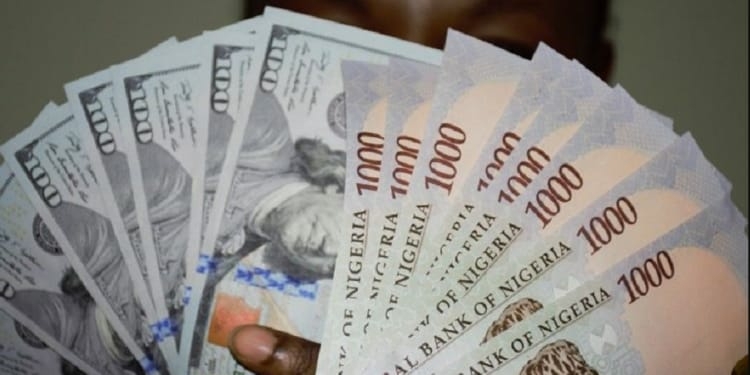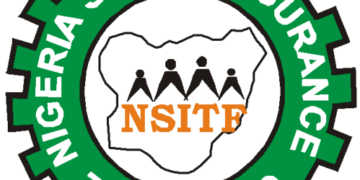Nigeria’s naira has recorded a 9.16 per cent gain against the dollar in the last six months, strengthening from N1,605 to the dollar in April 2025 to N1,457.95 as of October 24, 2025, at the official market. This reflects renewed investor confidence driven by recent macroeconomic reforms and international recognition of Nigeria’s improving financial environment.
According to data on the website of the Central Bank of Nigeria (CBN), the value of the naira has appreciated by N147.05 within the past six months at the official market. The appreciation was also evident on the black market, where the value of the naira increased by 6.83 per cent, or N110, over the past six months.
On the streets, the naira’s value appreciated to N1,500 to the dollar compared to N1,610, which it sold to the dollar as of April 25, 2025. This shows a narrowing exchange rate disparity and improved liquidity across trading windows.
The momentum was lifted following Nigeria’s removal from the Financial Action Task Force (FATF) grey list last week. This milestone restored global confidence in the country’s financial integrity and anti-money laundering framework.
According to the Chief Executive Officer of Financial Derivatives Company, Mr Bismarck Rewane, delisting from the FATF grey list immediately impacted the market. “It means a whole lot. The naira and rand have gained almost one per cent since the news. It is now N1,490 in the parallel market,” he said.
The FATF delisting came after Nigeria successfully implemented a two-year Action Plan to strengthen its anti-money laundering and counter-terrorist financing systems. The chief executive of the Nigerian Economic Summit Group (NESG), Dr Tayo Aduloju, had applauded the efforts of the CBN, NFIU, and EFCC in restoring compliance and credibility.
Similarly, the chief executive officer of Paga, Mr Tayo Oviosu, described the FATF move as a “big deal” that would open Nigeria up to renewed foreign direct investment and global partnerships. “This opens up the country for FDI and engagement from the West, especially,” Oviosu added.
The FATF decision’s impact on investor confidence reinforced sentiments initiated by FTSE Russell’s announcement, adding Nigeria to its Watch List for possible reclassification to Frontier Market status. The global index compiler stated that Nigeria now meets the five Quality of Markets criteria after clearing its foreign exchange backlogs and improving capital repatriation for foreign investors.
According to the 2025 FTSE Annual Equity Country Classification Review, global institutional investors confirmed that the country’s foreign exchange queues had been cleared, with no significant delays in fund repatriation since early 2025.
“Market participants have reported that the aforementioned FX queues had been cleared and that international institutional investors are no longer experiencing any material delays in their ability to repatriate capital from Nigeria,” the FTSE report stated.
The country’s inclusion on the list marked a potential turning point for Nigeria, which was downgraded to “Unclassified” status in 2023 due to severe foreign exchange distortions and illiquidity. Since then, the Central Bank under Governor Olayemi Cardoso has implemented sweeping reforms, including exchange rate unification, backlog clearance, and real-time FX market transparency measures.
Analysts at Cowry Assets Management expect the naira to remain relatively stable, supported by steady oil receipts and gradual reserve build-up. “In the coming week, we expect the naira to experience mild pressure as FX demand persists amid limited liquidity,” they said. “However, steady oil receipts and a gradual build-up in external reserves could support the local currency.”





